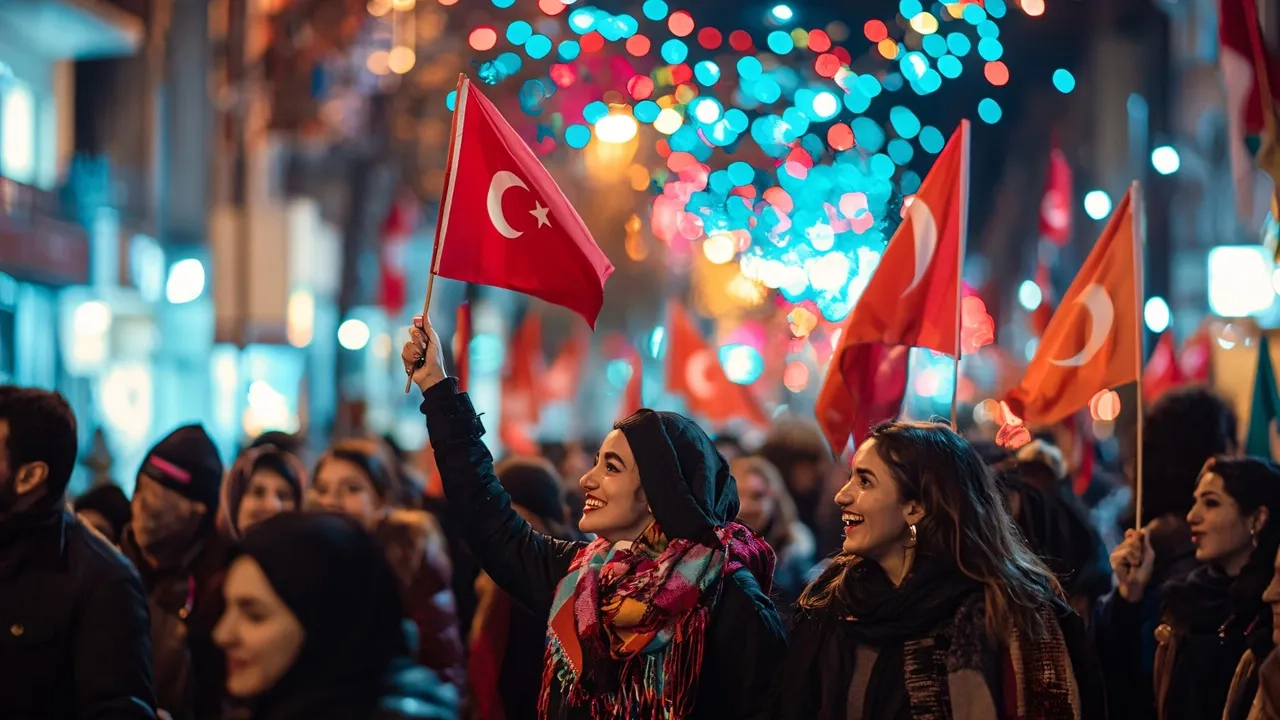Understanding the local culture cuts half the distance toward integration for an international student. In Türkiye, you’ll notice warm hospitality, deep respect for family, and the central place of food and tea in daily meet-ups. This guide introduces the key features of Turkish culture and traditions—from hospitality and holidays to the delicious cuisine and everyday etiquette—along with practical tips that make your first days at university, in housing, shopping, and transportation easier, so you can enjoy your study experience and make friends quickly and confidently.
Turkish Cuisine: From Kebab to Baklava
Turkish cuisine is rich and diverse, blending influences from Anatolia, the Balkans, and the Middle East. You’ll find many varieties of kebab (Adana, Urfa, İskender) alongside meze and budget-friendly “döner dürüm” wraps suitable for students. Desserts are also widely celebrated—such as baklava and Turkish delight—often served with tea. Be sure to try local eateries outside tourist areas for lower costs and authentic flavors.
Hospitality Customs and Visiting Etiquette
An emphasis on generosity and respect is a hallmark here; you’ll often be offered tea as soon as you enter a small shop or office. When visiting, it’s customary to remove your shoes if you see the hosts do so, and a few simple Turkish phrases of thanks leave a good impression. Avoid speaking loudly in public, respect queues and house rules. If you’re invited for a meal, light courtesies are appreciated, and bringing a simple dessert is a nice gesture. Remember, hospitality isn’t a sales pitch—you’re not obliged to buy something in exchange for a cup of tea in a bazaar shop.
Holidays and Occasions in Türkiye
Occasions range from religious holidays (Ramadan, Eid al-Fitr, Eid al-Adha) to national holidays such as Republic Day. During Ramadan, communal iftar meals light up universities and neighborhoods; it’s considerate to respect those who are fasting during the day. Local cultural, arts, and sports festivals run throughout the year, and you can plan short trips around Türkiye. One standout country-wide attraction is the hot-air balloon scene in Cappadocia; if you want to explore Anatolian culture and its unique travel experiences, read Cappadocia Balloon Festival 2025 – Dates, Best Views, and Activities.
Tea and Coffee: Everyday Rituals That Bring People Together
Turkish tea is the “language” of daily encounters—served in small tulip-shaped glasses and sipped unhurriedly. On campus or in local cafés, you’ll see how tea opens the door to conversation and new connections. Turkish coffee is stronger and usually served after meals or on special occasions; it comes with its own serving traditions and the playful custom of reading the cup. Try sipping tea along the seaside promenade at sunset—a simple ritual that fosters a sense of belonging and makes making friends easier.
Everyday Etiquette and Practical Tips for Students
Punctuality matters, though there’s some flexibility in social settings. Keep a neat appearance at university and in official offices, and carry some cash alongside your bank card. Using the “Istanbulkart” (or other city transport cards) lowers commuting costs. For budget-friendly outings, try green spaces or open-air activities; this list of top camping spots in Istanbul is great for low-cost student trips: Best Camping Spots in Istanbul.
Language and Communication: Essential Phrases to Make Life Easier
People appreciate any effort to speak Turkish, even a few words. Start with: “Merhaba” (hello), “Teşekkürler” (thank you), “Lütfen” (please), “Afedersiniz” (excuse me). Take a short course at your university or online, or set up a language exchange with Turkish classmates—learn Turkish from them while you help with Arabic or English. You’ll notice rapid improvement in everyday interactions with shopkeepers, staff, and bus drivers, which boosts your confidence and helps you handle tasks without stress.
Campus Life and Integrating into the Student Community
Campus life in Türkiye is vibrant with student clubs and cultural and sports events. Join orientation days and find clubs that match your interests (languages, volunteering, trips). Set time aside to discover the best Turkish cities to visit in summer if you’re planning a short break with classmates. Aim for a mix of Turkish and international friends; as time goes on, you’ll overcome the language barrier quickly and increase your chances for internships and part-time work.
Arts and Architecture: Bridges Between Past and Present
Istanbul’s architectural history is an open-air school—from churches and Ottoman palaces to mosques and modern buildings. If you enjoy blending culture with leisure, consider visiting iconic sites like the Basilica Cistern (the Subterranean Palace)—a stunning place to appreciate underground engineering. Visits like this provide rich material for photography and class projects and strengthen your connection to the city’s historical context.
Quick Tips for Confident Integration
- Be the first to greet and smile—it opens doors quickly.
- Explore neighborhoods and local markets away from tourist centers to keep costs down.
- Plan short getaways within Türkiye to discover its cultural diversity—start with the summer cities guide above, or dedicate a weekend to visiting Çamlıca Tower for views over the Bosphorus.
- Join university events and cultural programs; student discounts are often available for museums and educational trips.
Conclusion
Turkish culture is approachable and rich in delightful details. Once you understand the customs of hospitality, get used to tea and coffee rituals, and learn a few basic Turkish phrases, you’ll find that integration happens naturally. Begin with small steps, explore the city and its landmarks, and take part in campus life—you’ll gain an easier study journey and deeper memories.
